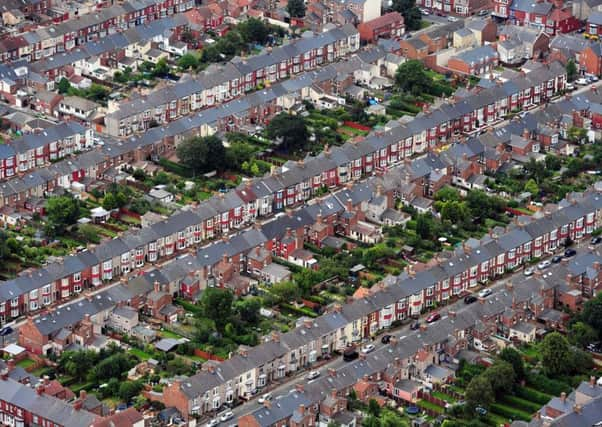Avoidable illnesses '˜caused by poor homes' costing Yorkshire health trusts £10million each per year


Fuel poverty charity National Energy Action (NEA) claims cold homes are a “public health emergency” after figures from the Office for National Statistics showed 4,100 people in Yorkshire died needlessly due to the cold in 2014/15.
It is estimated that around 240,000 households in the county are in fuel poverty – more than one in 10 – as every English health trust spends on average £10million per year treating patients with conditions caused or worsened by cold homes.
Advertisement
Hide AdAdvertisement
Hide AdThe charity claims that in the past four years alone over £5billion of tax payers’ money has been wasted while 117,000 people have died needlessly due to the cold.
Jenny Saunders, NEA chief executive, has called for action from both local health and wellbeing boards and the Government in the fight for cold homes to be considered a serious health issue.
She said: “Cold homes are a public health emergency and are dramatically reducing life chances for vulnerable people.
“As well as it being completely unacceptable that in the 21st Century people are still becoming ill and dying needlessly because they live in cold homes, treating health-related conditions is also placing a shocking strain on the public purse.
Advertisement
Hide AdAdvertisement
Hide Ad“Sweden and Norway can manage to avoid these costs and prevent thousands of extra people being admitted to hospital each winter because their residents live in housing which is efficient to heat, despite colder temperatures and higher energy prices. Given we know the causes and the best cure; we can’t just shrug our shoulders and accept cold-related illness and death as inevitable. It isn’t.”
Evidence suggests that living in poor housing – such as with damp and mould – can lead to an increased risk of heart disease and respiratory problems. Conditions such as asthma and arthritis are often worse when it is cold.
The NEA’s warning, which coincides with Fuel Poverty Awareness Day, comes less than a year after the National Institute for Health and Care Excellence (NICE) issued guidance on how to reduce avoidable winter deaths.
Nevertheless figures released in November showed there were about 43,900 excess deaths in England and Wales the previous winter, which is the highest number since 1999.
Advertisement
Hide AdAdvertisement
Hide AdHighlighting a lack of action at a local and national level in taking the issue to the heart of policy, the NEA claims that despite concrete warnings from NICE only half of local health and wellbeing boards – collectives involving local authorities and NHS figures – have adopted its recommendations into strategic health policy.
The NEA is now set to undertake research to establish how many local health and wellbeing boards have adopted the NICE recommendations.
Calling on all local authority areas to join the fight, Ms Saunders said: “We will publish the results and hope to see a dramatic increase in addressing cold homes as a local strategic priority.”
She added: “As well as more local action, it is clear we also need the Government to significantly increase investment in national programmes to help vulnerable and sick individuals improve insulation or fix their heating.
“Refocusing current resources on low-income households will help but ultimately existing national programmes remain woefully inadequate to fulfil Government targets.”